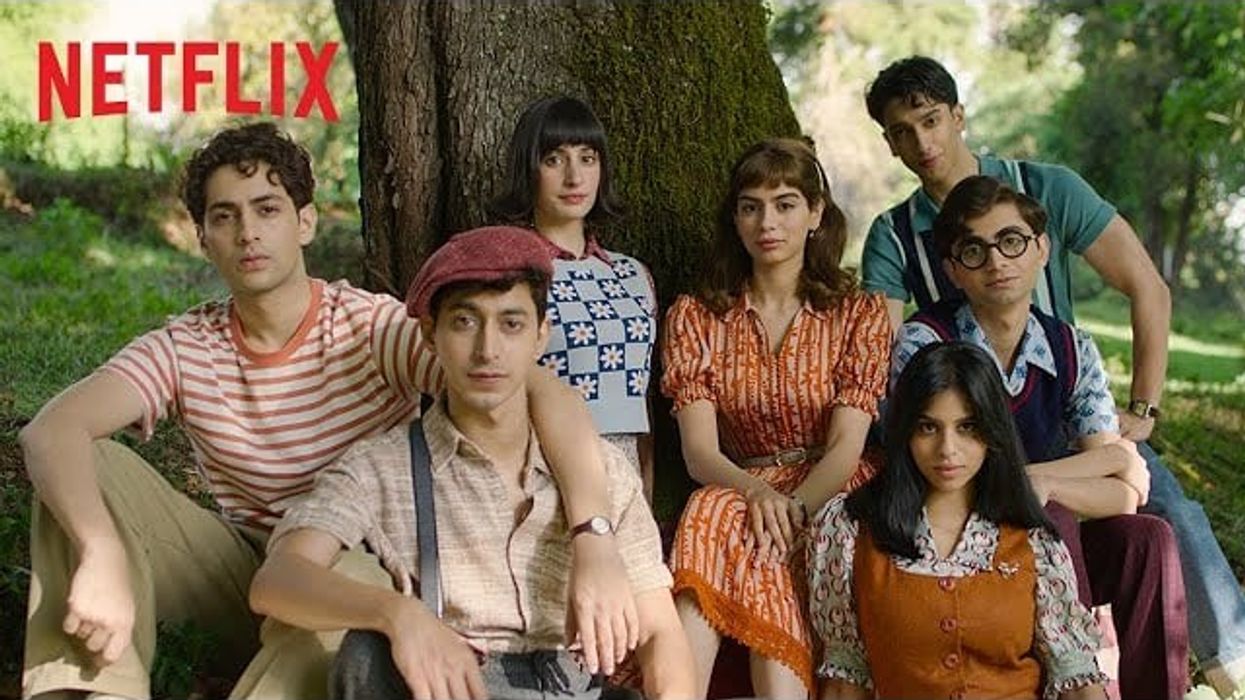Ace filmmaker Zoya Akhtar is gearing up for her upcoming film The Archies, which got the limelight since the release of its trailer.
Bringing back the nostalgia of the 1960s when teenagers would enjoy reading Archie Comics rather than surfing the internet, Zoya has attempted to recreate the magic of that era in her movie.
Drawing inspiration from the beloved Archie Comics, the director shared her love for the comics, reflecting on her childhood experiences and the challenges involved in bringing this dreamy world to life through the film.
While talking about the film, Zoya told ANI, "My love is for the comic. I grew up reading the comic. That was a pre-liberalised India and there wasn't access to everything like today in the early 80s. It was a dreamy escape and that dream escape is what I've tried to capture with this film."
Opening up about the casting of the film and how it happened, she shared, "The casting took eight months to a year. We knew that the characters are so iconic. They are known globally. We didn't want to take any established stars because they come with their own image and baggage. We needed people who the audience will believe to be Archie, Veronica, Reggie, and Dilton. We knew we wanted newcomers. They had to be 17 years old. So, they had to be very young. We tested everyone."
On casting the newcomers and even those who have no acting background, Zoya said, "Agastya, who plays Archie. He was in business school. He had no idea and I told him to just come and audition. And then I kept auditioning him and before he knew it, he was in the movie."
She continued, "The second was Dot (Aditi Saigal), who is a musician and plays Ethel. I met her to get a song from her and in the middle of that Zoom conversation, I was like, 'She is too Ethel.' So I asked her if she could act and she said no. Then I said, if she could audition and she said yes. So I tested her and she got cast."
"We found Dilton (Yuvraj Menda) on Instagram. He used to put up dance videos and stuff. We called him in when he was 17. He had not even turned 18 and he was still in school. He had no idea he was going to act," she added.
When asked about the criteria for choosing Suhana as Veronica, Agastya as Archie, Khushi as Betty, and others, she said, "Suhana was already cast. Suhana was studying acting and I've seen her in a short film. I've seen her act and she has always wanted to be an actor. So when she came in, she tested for both Betty and Veronica. We liked her more for Veronica and Khushi for Betty. Ethel (Aditi Saigal) and Archie (Agastya Nanda) got cast last."
Zoya mentioned the challenges faced while making a movie on such a popular and iconic subject as expectations of the audience have to be kept in mind.
As she shared, "The challenge is double-fold because for the people who are fans of Archie, they want to get the nostalgia. They want to go back to that time when they were children. They are fans and cannot come out and ask, 'What is this?' They have to look at it and feel as if they are 12-year-olds again. That innocence and idealism need to be there. For the new generation that doesn't know Archie, there has to be something that concerns them something and that emotionally resonates with them. We kept the essence; we kept the nostalgia and we kept the characters and their traits. But we made the theme of the story Gen Z."
The film will be out on Netflix on December 7.




